University of California
Ucmp: The World's Biomes
This is an introduction to the major biomes on Earth. This page groups biomes into five major types: aquatic, deserts, forests, grasslands, and tundra. Information on climate, animal/plant life, and much more is given for each of type...
Nature Conservancy
Nature Works Everywhere: How Natural Areas Filter Water
By studying nature's filters, young scholars learn about the importance of water quality for human health and agriculture.[4 min, 6 sec] Includes lesson plan and student handouts.
United Nations
United Nations Sustainable Development Issues
United Nations Division for Sustainable Development covers issues ranging from Agriculture to Waste. This site offers documents and action plan implementation for sustainable development of the earth's natural resources.
Science Buddies
Science Buddies: Home Sweet Biome: How Do Plants Grow in Different Environments?
In this science fair project you will learn about biomes and how different climatic conditions affect plant growth. This can explain why some plants and animals are similar in different areas of the country, and in other parts they are not.
Georgia Department of Education
Ga Virtual Learning: Water, Soil, and Agriculture
Students learn about the fundamental importance of water, soil, and agriculture in sustaining the human standard of living; and the heavy toll that current agricultural practices take on water and soil resources.
Other
The Academy of Natural Sciences
This site describes the museum. It shows the viewer what is currently on exhibit, interesting facts, and many links to other exhibits.
Utah Education Network
Uen: Trb 4:1 Investigation 1 Where Is Water Found?
Activity helps with understanding the distribution of water on earth.
PBS
Nh Pbs: Nature Works: Wetlands
Did you know that wetlands are frequently used as resting stops for migrating birds? This is just one of the many interesting facts found within this educational resource. This site features information on the characteristics, types,...
Untamed Science
Untamed Science: Biology: World Biomes: Lakes and Ponds Biome
Learn about the biotic and abiotic factors of lakes and ponds as well as learning how lakes form through reading and video clips.
PBS
Nh Pbs: Nature Works: Swamps
What characteristics make a swamp a swamp? This site features information on the Great Dismal Swamp, Conifer Swamps, Okefenokee Swamps, Shrub Swamps, Hardwood Swamps, and Cypress Swamps. This site also offers some great photographs of...
US Geological Survey
Usgs: Common Water Measurements
This site from the U.S. Geological Survey provides great definitions of seven measurements that can be taken on water. Includes pH, dissolved oxygen, and turbidity. Click Home to access the site in Spanish.
University of Utah
University of Utah: Genetic Science Learning Center: Great Salt Lake All Year
Investigate an ecosystem teeming with life, and discover the many bird species who reside at the Great Salt Lake throughout the year.
PBS
Nh Pbs: Nature Works: Lakes
What is a lake? Discover the answer to this question when you explore this informative resource. This site provides information on how temperature and seasonal changes effects lakes, how lakes are formed, how lakes compare in numbers to...
PBS
Pbs Learning Media: The Water Planet
75% of our earth is covered by water. Water can be found in oceans, lakes, rivers, groundwater, and sea ice. View these captivating photos of our earth showing the different water sources and images of our earth taken by NASA. Background...
CK-12 Foundation
Ck 12: Fifth Grade Science: Earth Science: Humans and the Water Supply
[Free Registration/Login may be required to access all resource tools.] Looks at ways that humans use water, why some people don't have enough water, and why poor quality water is a problem.
NASA
Nasa: Polar Ice and Its Possible Effects on the Earth
This article describes the effects of polar ice caps on the Earth and offers explanations as to the possible effects of polar ice melting on sea level and temperature.
E-learning for Kids
E Learning for Kids: Science: Ocean Center: Why Do We Need to Conserve Water?
Go aboard on a cruise ship with Denise and her family. Help her learn about water conservation, and why it is important.
US Environmental Protection Agency
Epa: The Case of the Mysterious Renters [Pdf]
Let your students discover how much water they use in one day. Then allow them to brainstorms ideas on how to conserve that water and why it is important. PDF format.
Texas Instruments
Texas Instruments: Water Cycle
This water cycle activity is designed to assess the comprehension of concepts related to the water cycle.
Texas Instruments
Texas Instruments: Probing an Aquatic Ecosystem
In this activity, students' use a pH sensor and Temperature Sensor to measure and compare the pH and temperature of three aquariums over a period of several weeks. They will compare and understand how plants and animals affect the water...
Environmental Education for Kids
Eek!: Water Wonders
This site from the Environmental Education for Kids contains colorful and detailed information on water resources. Site covers fascinating tips and facts, as well as engaging quizzes on the wonderful world of water. Best suited for...
US Environmental Protection Agency
Epa: Excuse Me, Is This the Way to the Drain Pipe? [Pdf]
Ever wonder where your drinking water comes from? And what happens to it after you're done? "Excuse Me, Is this the Way to the Drain Pipe?" is a great story and lesson plan about a drop of water going through the water cycle and through...
US Environmental Protection Agency
Epa: Deep Subjects: Wells and Ground Water [Pdf]
In this inquiry-based activity, students learn how groundwater comes to exist, moves through the soil, and how it is removed from the ground.
Other popular searches
- Freshwater Fish
- Freshwater Ecosystems
- Fresh Water Pollution
- Freshwater Organisms
- Fresh Water Salt Water
- Freshwater and Saltwater
- Fresh Water Sources
- Fresh Water Ecosystems
- Freshwater Wetlands
- Fresh Water Biomes
- Boiling Point Fresh Water
- Freshwater Habitats




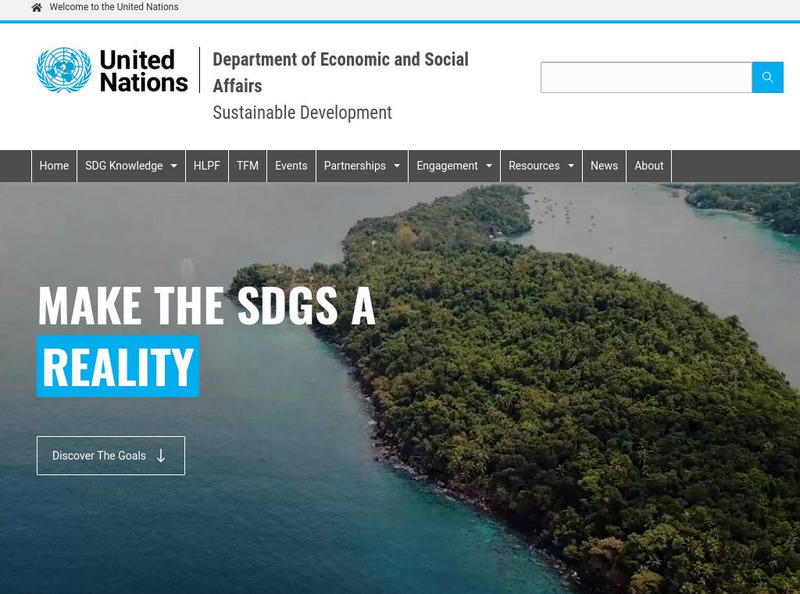

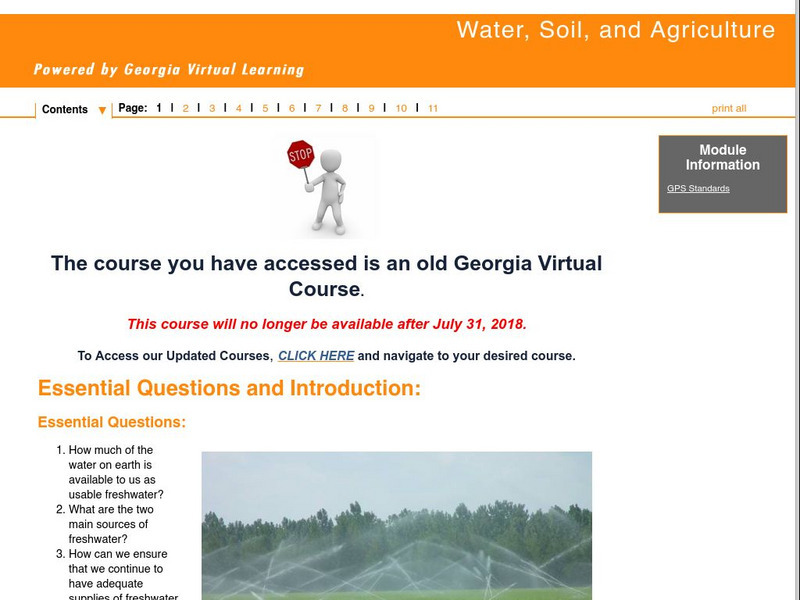
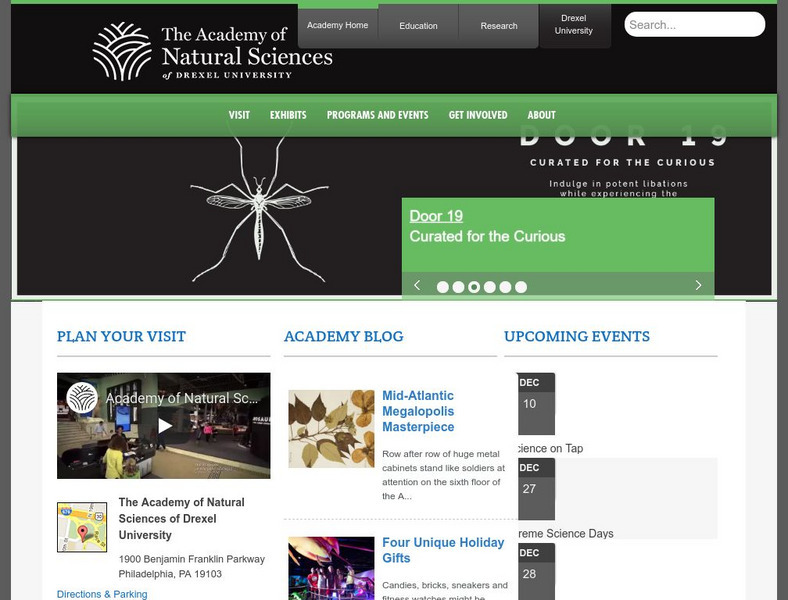

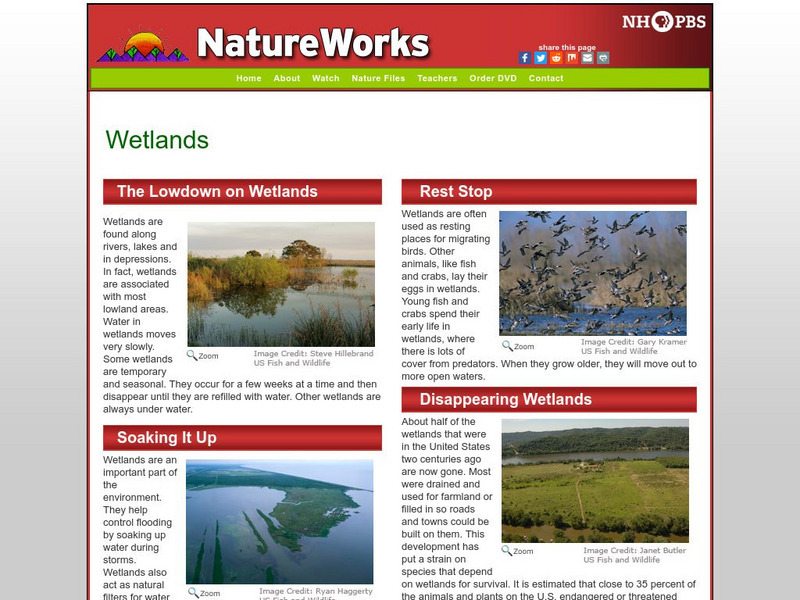
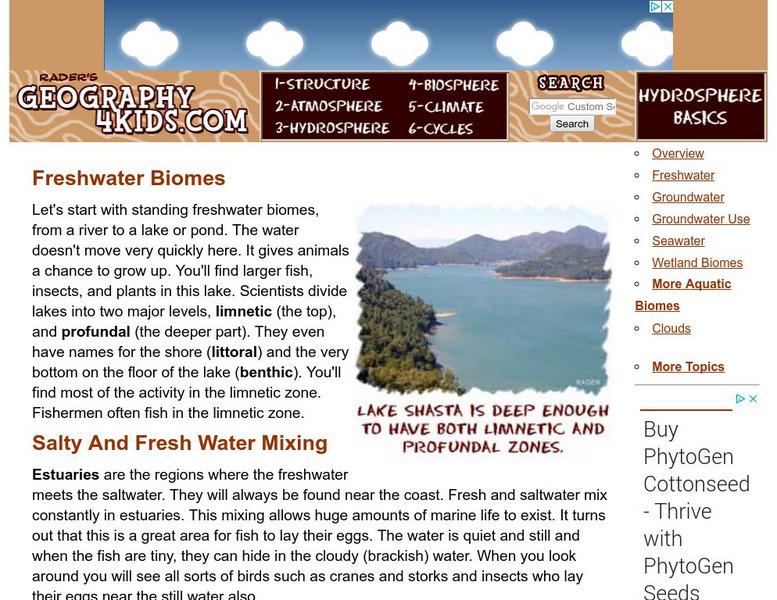



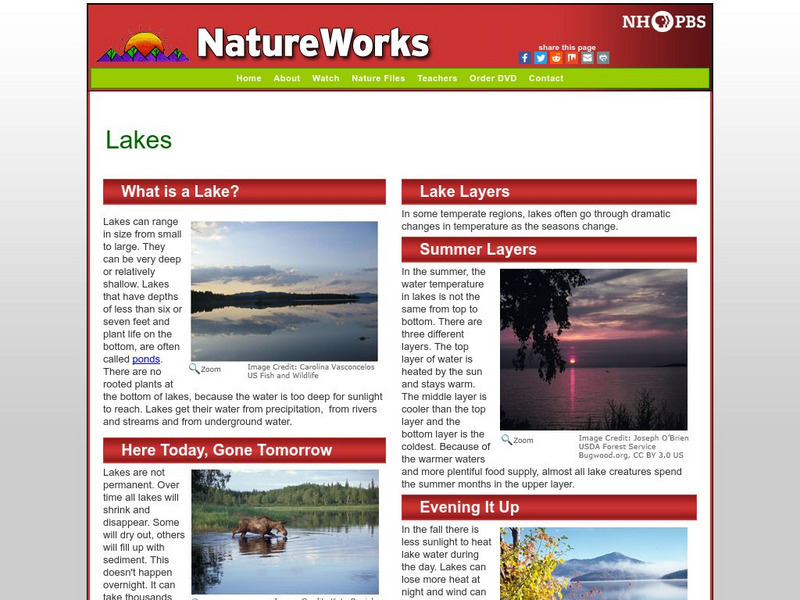

![Epa: The Case of the Mysterious Renters [Pdf] Lesson Plan Epa: The Case of the Mysterious Renters [Pdf] Lesson Plan](https://content.lessonplanet.com/knovation/original/29099-b3e19dc747925851b4f458b1482def5e.jpg?1661255997)

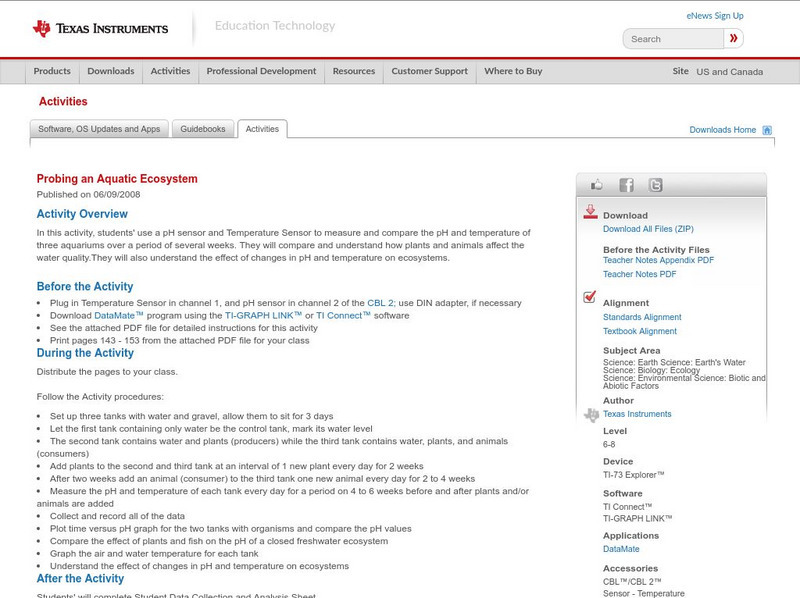
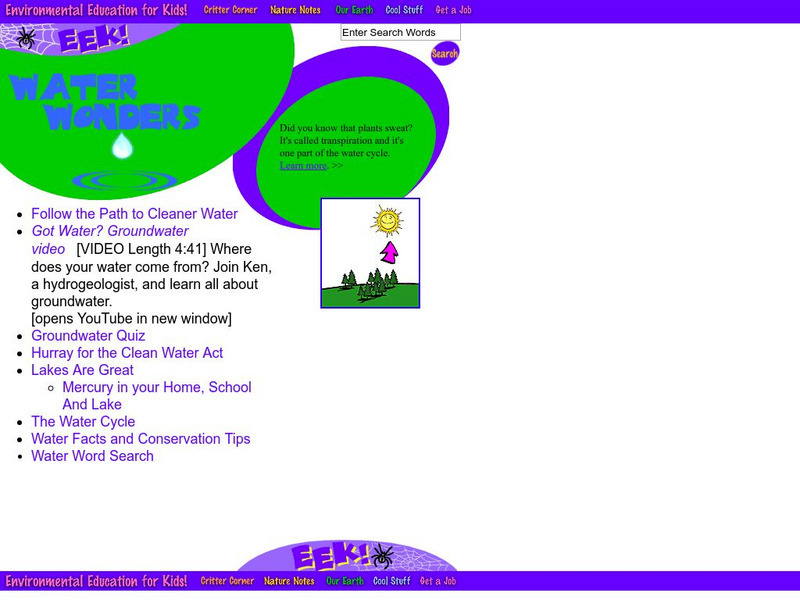
![Epa: Excuse Me, Is This the Way to the Drain Pipe? [Pdf] Lesson Plan Epa: Excuse Me, Is This the Way to the Drain Pipe? [Pdf] Lesson Plan](https://content.lessonplanet.com/knovation/original/38691-8e8499c77a908b9761fec8738a536bad.jpg?1661255988)
![Epa: Deep Subjects: Wells and Ground Water [Pdf] Lesson Plan Epa: Deep Subjects: Wells and Ground Water [Pdf] Lesson Plan](https://content.lessonplanet.com/knovation/original/38692-ee87b7b4ccce1ab33f6f3c236437237f.jpg?1661255981)